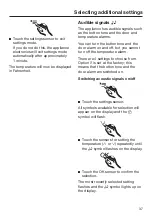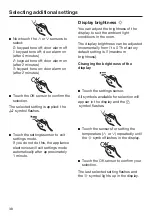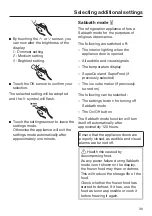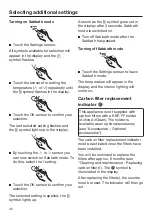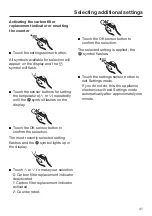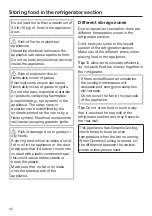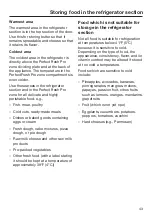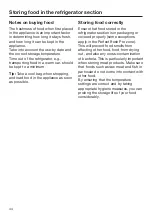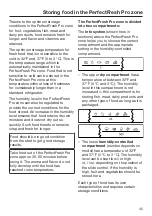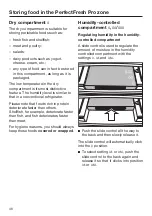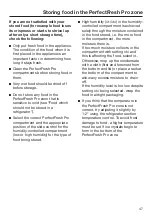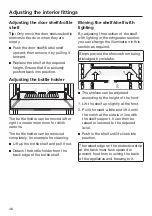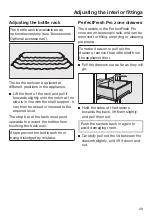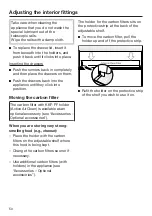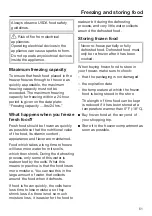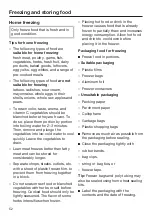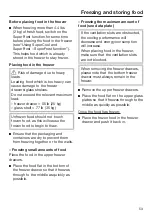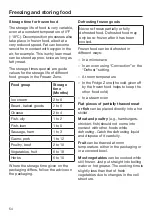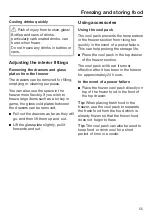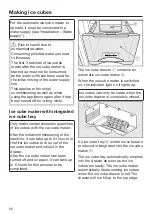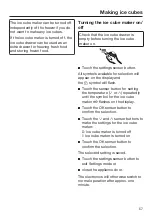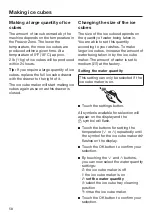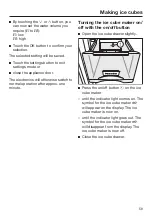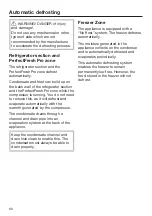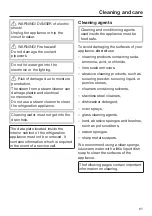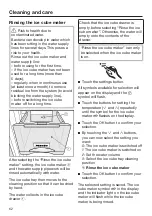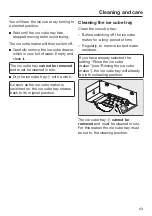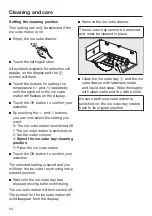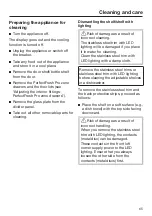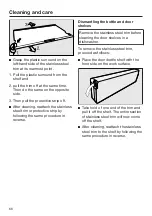
Freezing and storing food
51
Always observe USDA food safety
guidelines.
Risk of fire from electrical
appliances.
Operating electrical devices in the
appliance can cause sparks to form.
Do not operate any electrical devices
inside the appliance.
Maximum freezing capacity
To ensure that fresh food placed in the
freezer freezes through to the core as
quickly as possible, the maximum
freezing capacity must not be
exceeded. The maximum freezing
capacity for freezing within a 24-hour
period is given on the data plate:
“Freezing capacity ....lbs/24 hrs.”
What happens when you freeze
fresh food?
Fresh food should be frozen as quickly
as possible so that the nutritional value
of the food, its vitamin content,
appearance and flavor are maintained.
Food which takes a long time to freeze
will lose more water from its cells,
which then shrink. During the defrosting
process, only some of this water is
reabsorbed by the cells. What this
means in practice is that the food loses
more moisture. You can see this in the
large amount of water that collects
around the food when it defrosts.
If food is frozen quickly, the cells have
less time to lose moisture, so they
shrink less. As there is not so much
moisture loss, it is easier for the food to
reabsorb it during the defrosting
process, and very little water collects
around the defrosted food.
Storing frozen food
Never re-freeze partially or fully
defrosted food. Defrosted food must
only be re-frozen after it has been
cooked.
When buying frozen food to store in
your freezer, make sure to check:
– that the packaging is not damaged
– the expiration date
– the temperature at which the frozen
food is being stored in the store
The length of time food can be kept
is reduced if it has been stored at a
temperature warmer than 0°F (-18°C).
Buy frozen food at the very end of
your shopping trip.
Store it in the freezer compartment as
soon as possible.
Summary of Contents for KFNS 37692 iDE-1
Page 118: ......

